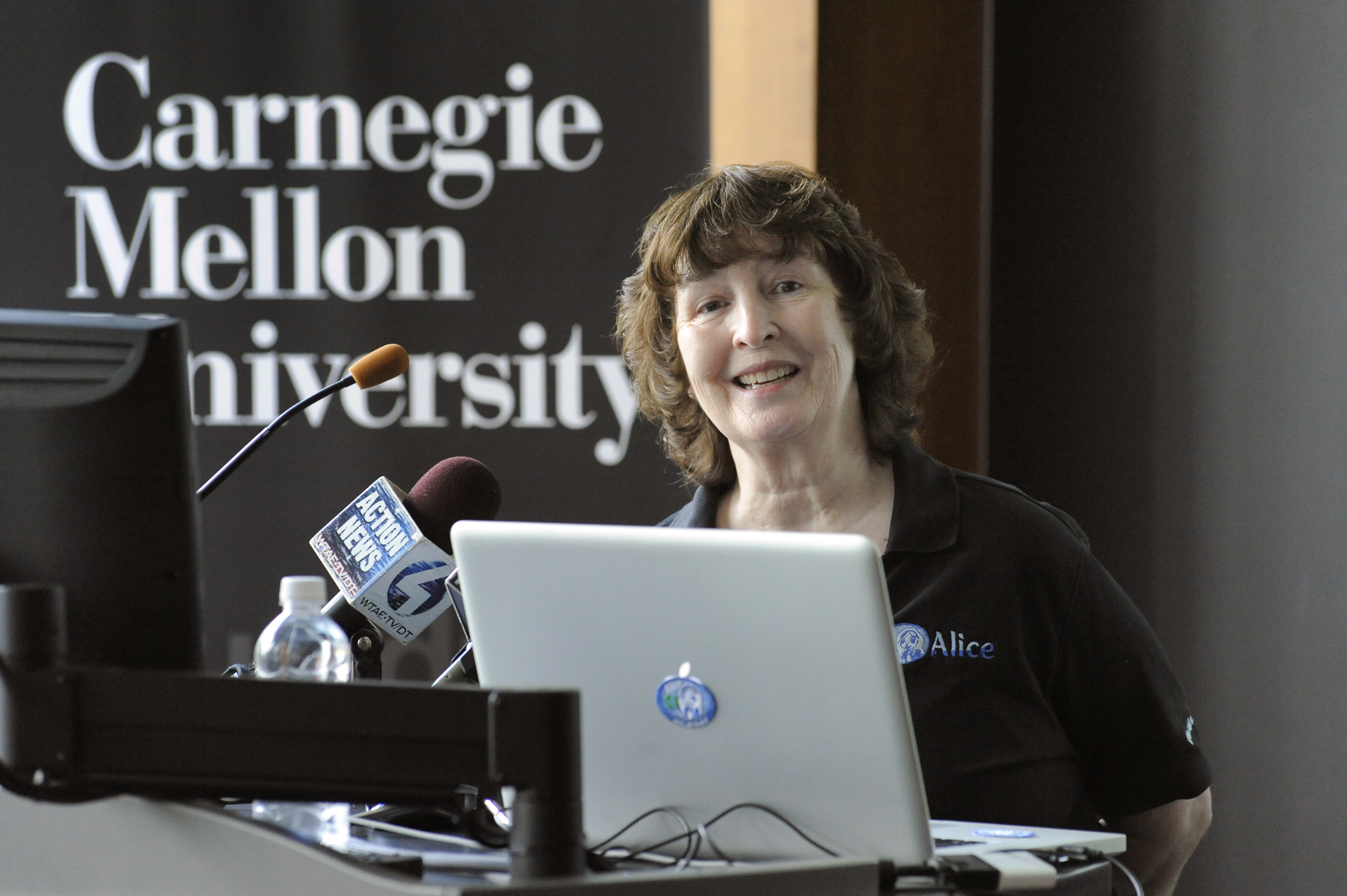Carnegie Mellon, FBI Announce Competition Promoting Internet Safety Awareness
Byron SpiceTuesday, October 12, 2010Print this page.

PITTSBURGH-Carnegie Mellon University and the Federal Bureau of Investigation today announced a national competition, in which students will share their knowledge about how to avoid dangers associated with Internet use by creating computer animations that promote safety concepts.
The animation competition is the latest component to the FBI's ongoing Safe Online Surfing (SOS) Program developed by the FBI's Cyber Division and Nova Southeastern University. The SOS Program delivers critical Internet safety information to third- through eighth-grade students. More than 70,000 children in 41 states have completed the program, which fosters fun competition between local schools. SOS became one of the FBI's national initiatives in October 2009.
The FBI, in partnership with Carnegie Mellon's School of Computer Science, is expanding SOS to include a national competition, in which middle and high school students will create 45-second animations using Alice, a software package developed and provided free of charge by Carnegie Mellon that enables even novices to make 3-D computer animations.
The need to educate young people about hazards associated with Internet use has never been greater. Predators solicit one in seven children online, according to a recent study, and more than half are asked to send photographs of themselves.
"The Internet is a powerful resource for our youth, but it also presents opportunities for those who would attempt to do them harm," said Gordon M. Snow, assistant director of the FBI Cyber Division. "The Safe Online Surfing program is designed to teach young people what they need to know to avoid falling victim to individuals who want to take advantage of their youth and innocence. Through this project, we hope to keep a generation of children safe online and tap into their creativity to promote their own protection."
"We at Carnegie Mellon are honored to collaborate with the FBI on the SOS Project," said Wanda Dann, associate teaching professor at Carnegie Mellon and director of the Alice Project. "The Internet offers great resources for learning and communication and we want to help children learn to use these resources safely. In this collaboration, teachers and students will work together to learn safe surfing techniques. By using our Alice software to create 3-D animations, students can then use their imaginations and creativity to spread this message even further and perhaps even more effectively."
"I'm so pleased with the success that the FBI-SOS program has experienced over the last five years," said Daryl Hulce, SOS Program administrator at Nova Southeastern University. "It started out as just an idea but has grown into a fun and engaging program that has provided children with the information necessary to confidently make safer decisions online. By partnering with Carnegie Mellon University's School of Computer Science, we will have the ability to reach more children and families with our message."
The Alice Project was created by the late Randy Pausch, a professor of computer science at Carnegie Mellon who gained international fame three years ago when he delivered a speech that became an Internet sensation and the basis of the best-selling book, "The Last Lecture." The address to students and faculty members, presented after he received a terminal diagnosis of pancreatic cancer, was a frank, often funny and ultimately uplifting talk about how to achieve your dreams.
Pausch's vision for the Alice software was to make the process of creating 3-D computer animations so much fun that students didn't realize that they were also learning something very hard - computer programming. "In the same way, we want to make creating animations for the SOS competition so engrossing that it actually causes students to think long and hard about how to use the Internet safely," Dann said.
As Pausch wrote in the book he co-authored, "Walt Disney's dream for Disney World was that it would never be finished. He wanted it to keep growing and changing forever. In the same way, I am thrilled that the future versions of Alice now being developed by my colleagues will be even better than what we've done in the past."
Middle and high school students are eligible to participate in the competition by creating 45-second animations using the Alice Project software. The entries should express one or more of the SOS program's safety concepts. Submissions will be reviewed and the top entries will be posted on www.fbi-sos.org for voting. The FBI will recognize the creators of winning entries and their teachers.
Participating schools must register at www.fbi-sos.org before Feb. 1, 2011. Animations are due by March 31, 2011, and may be sent to www.fbi-sos.org.
The Alice Project has received support from Sun Microsystems, Electronic Arts, National Science Foundation, DARPA, Intel, Microsoft and SAIC, as well as Google, General Dynamics, The Heinz Foundation and The Hearst Foundation.
Carnegie Mellon is a leading center for research on cybersecurity and Internet privacy and has developed innovative programs for educating young people about online safety. CMU's Information Networking Institute operates educational outreach programs such as MySecureCyberspace, a portal that helps the public understand the dangers of Web surfing and offers an encyclopedia of terms, key articles and tools to combat cyberbullying, identity theft and online predators. The outreach also includes a cyber game designed for fourth- through sixth-graders that teaches Internet safety and computer security.

Byron Spice | 412-268-9068 | bspice@cs.cmu.edu
